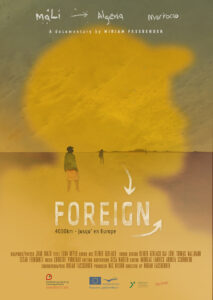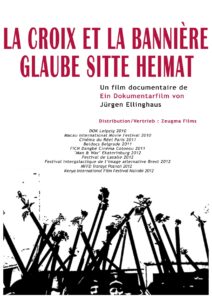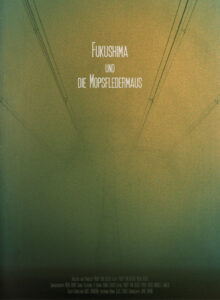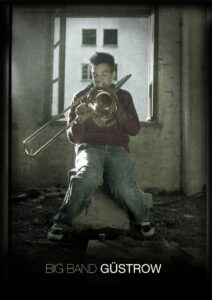Filmmaker, podcaster & more
 “Foreign” (directed by Miriam Fassbender) depicts the forced departure of two young Africans to Europe. For two and a half years, they have been journeying to a world where they never wanted to live. The film explores the reasons for their flight and provides insight into the living conditions and exhausting daily life of migrants traveling from Sub-Saharan Africa to Europe, through Algeria and Morocco. It portrays their lives, marked by haste and hope, flight and stagnation. It addresses life as long-term travelers and survival in a foreign land.
“Foreign” (directed by Miriam Fassbender) depicts the forced departure of two young Africans to Europe. For two and a half years, they have been journeying to a world where they never wanted to live. The film explores the reasons for their flight and provides insight into the living conditions and exhausting daily life of migrants traveling from Sub-Saharan Africa to Europe, through Algeria and Morocco. It portrays their lives, marked by haste and hope, flight and stagnation. It addresses life as long-term travelers and survival in a foreign land.
 Every two years, the small town of Beverungen, in the heart of Germany, celebrates its traditional shooting festival with particular vigor. The festivities focus on numerous parades with uniformed marchers and a shooting contest, where the winner is proclaimed “King.” In the Germanic regions, shooting guilds have been known since the 10th century. They protected cities and rural areas from disturbances, wars, and looting. In Beverungen, about a quarter of the active male population is involved in the local shooting association. In 2008, Beverungen had the honor of hosting the annual festival of the “Confederation of Historical German Shooting Brotherhoods,” with thousands of participants coming from all over western Germany. District Kings and Diocesan Majesties compete for the title of the new “Confederal King” of the year, who receives the royal insignia in front of the altar, after the blessing prayer…(directed by Jürgen Ellinghaus)
Every two years, the small town of Beverungen, in the heart of Germany, celebrates its traditional shooting festival with particular vigor. The festivities focus on numerous parades with uniformed marchers and a shooting contest, where the winner is proclaimed “King.” In the Germanic regions, shooting guilds have been known since the 10th century. They protected cities and rural areas from disturbances, wars, and looting. In Beverungen, about a quarter of the active male population is involved in the local shooting association. In 2008, Beverungen had the honor of hosting the annual festival of the “Confederation of Historical German Shooting Brotherhoods,” with thousands of participants coming from all over western Germany. District Kings and Diocesan Majesties compete for the title of the new “Confederal King” of the year, who receives the royal insignia in front of the altar, after the blessing prayer…(directed by Jürgen Ellinghaus)

In the face of nuclear energy problems and the end of fossil fuels, the future belongs to renewable energy. In Germany, the “energy transition” is causing conflicts, especially regarding the expansion of wind energy. Politicians, businesses, citizens, and environmentalists are debating the preservation of nature versus economic interests, particularly with the construction of wind turbines in forests.
The film “Fukushima and the Bat” (directed by Philipp von Becker) illustrates this struggle in the Spessart Forest in Hesse, raising essential questions about citizen participation, reconciling global and regional issues, and balancing nature conservation with economic interests.
Ultimately, it prompts reflection on what each person is willing to sacrifice for their energy-intensive lifestyle and what they are prepared to give up to preserve natural resources.

Güstrow, a town in former East Germany, is witnessing a development that affects its entire region: economic prospects are bleak, and residents are leaving to seek better opportunities elsewhere. By 6 p.m., the streets are deserted, and the town resembles a ghost town. However, it is through music that the film’s protagonists find both comfort and an outlet, as well as new ambitions and hope. The film depicts an unusual big band, where seven-year-olds play alongside 77-year-olds, led by an energetic conductor who introduces new methods of learning and playing music. Her dream is to take the band on a musical tour through Turkey, performing on market squares from Ankara to Istanbul.
The film follows this ambitious project and the tragicomic negotiations with political authorities. But above all, it is the varied life stories of the musicians, reflecting the disillusioned hopes after German reunification and showing escapes and departures into new worlds, through which Big Band Güstrow (directed by Phillip von Becker) creates an intimate and special portrait of contemporary German history.